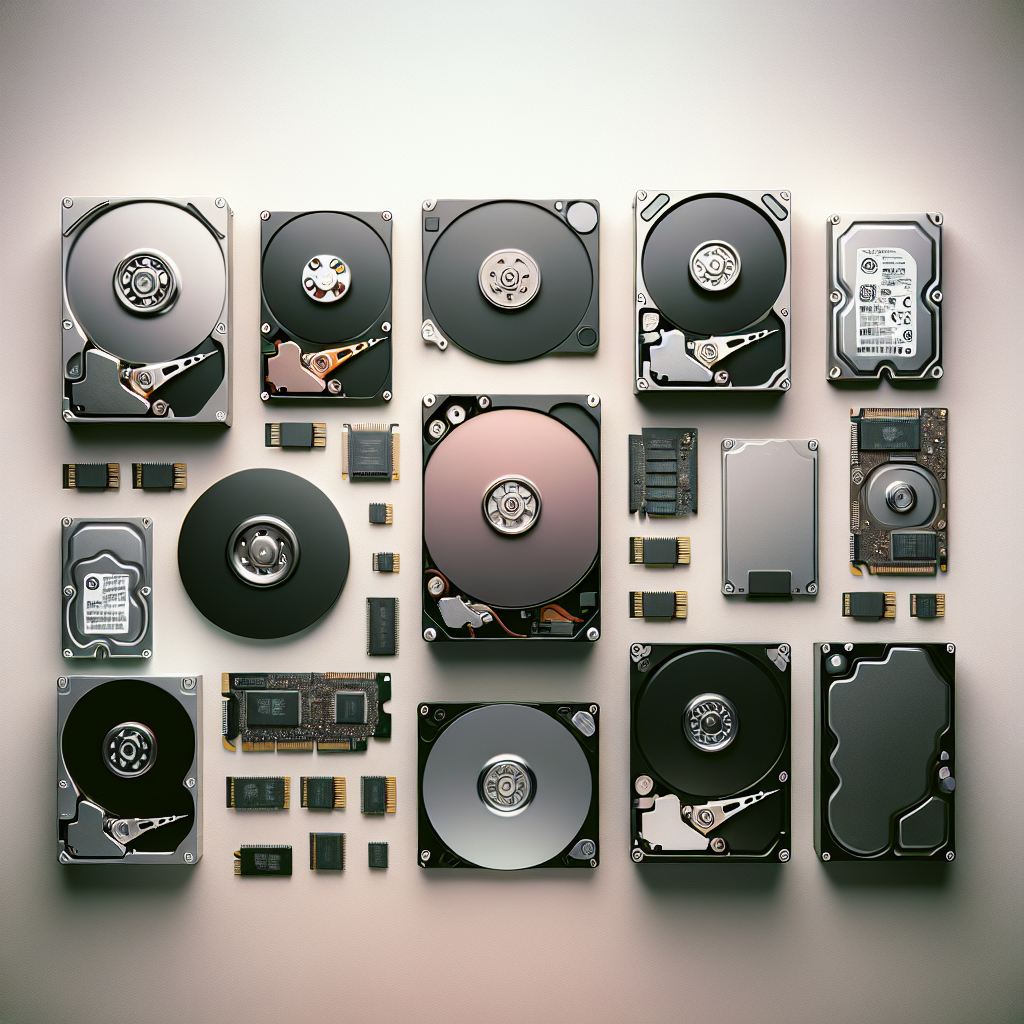In today’s digital age, storage is a crucial aspect of our everyday lives. Whether it’s for storing important documents, photos, videos, or even just for gaming, having the right type of disk drive is essential. There are several types of disk drives available on the market today, each with its own unique features and benefits. In this article, we will explore some of the most common types of disk drives, including HDDs, SSDs, and more.
Hard Disk Drives (HDDs) have been around for decades and are one of the most popular types of disk drives. They use spinning platters to store data and have a read/write head that moves across the platters to access the data. HDDs are known for their large storage capacities and relatively low cost compared to other types of disk drives. However, they are also slower and more prone to mechanical failures due to their moving parts.
Solid State Drives (SSDs) are a newer type of disk drive that have become increasingly popular in recent years. SSDs use flash memory to store data, which allows for much faster read and write speeds compared to HDDs. They are also more durable and reliable since they have no moving parts. However, SSDs tend to be more expensive than HDDs and have smaller storage capacities.
Hybrid Drives combine the best of both worlds by combining the large storage capacity of an HDD with the speed and durability of an SSD. These drives typically have a small amount of flash memory for caching frequently accessed data, while the majority of the data is stored on the spinning platters of the HDD. Hybrid drives offer a good balance between speed, capacity, and cost.
External Drives are portable disk drives that can be connected to a computer via USB or Thunderbolt. They come in various forms, including HDDs, SSDs, and even hybrid drives. External drives are great for expanding your storage capacity or for backing up important data. They are also convenient for transferring large files between different devices.
Network-Attached Storage (NAS) drives are disk drives that are connected to a network and can be accessed by multiple devices. NAS drives are often used for storing and sharing files within a home or office network. They typically have multiple drive bays for adding additional storage capacity and can be configured for data redundancy and backup.
In conclusion, there are several types of disk drives available on the market, each with its own strengths and weaknesses. Whether you prioritize speed, capacity, durability, or cost, there is a disk drive out there that will meet your needs. When choosing a disk drive, consider factors such as storage capacity, read/write speeds, durability, and cost to find the best option for your specific requirements.


Leave a Reply